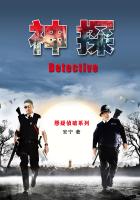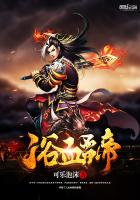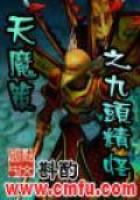Thus,e.g.though the squaring of the circle by means of the lunulesis not contentious,Bryson”s solution is contentious:and the formerargument cannot be adapted to any subject except geometry,becauseit proceeds from principles that are peculiar to geometry,whereas thelatter can be adapted as an argument against all the number ofpeople who do not know what is or is not possible in each particularcontext:for it will apply to them all.Or there is the method wherebyAntiphon squared the circle.Or again,an argument which denied thatit was better to take a walk after dinner,because of Zeno”s argument,would not be a proper argument for a doctor,because Zeno”s argumentis of general application.If,then,the relation of the contentiousargument to the dialectical were exactly like that of the drawer offalse diagrams to the geometrician,a contentious argument upon theaforesaid subjects could not have existed.But,as it is,thedialectical argument is not concerned with any definite kind of being,nor does it show anything,nor is it even an argument such as wefind in the general philosophy of being.For all beings are notcontained in any one kind,nor,if they were,could they possibly fallunder the same principles.Accordingly,no art that is a method ofshowing the nature of anything proceeds by asking questions:for itdoes not permit a man to grant whichever he likes of the twoalternatives in the question:for they will not both of them yield aproof.Dialectic,on the other hand,does proceed by questioning,whereas if it were concerned to show things,it would have refrainedfrom putting questions,even if not about everything,at least aboutthe first principles and the special principles that apply to theparticular subject in hand.For suppose the answerer not to grantthese,it would then no longer have had any grounds from which toargue any longer against the objection.Dialectic is at the sametime a mode of examination as well.For neither is the art ofexamination an accomplishment of the same kind as geometry,but onewhich a man may possess,even though he has not knowledge.For it ispossible even for one without knowledge to hold an examination ofone who is without knowledge,if also the latter grants him pointstaken not from thing that he knows or from the special principles ofthe subject under discussion but from all that range of consequencesattaching to the subject which a man may indeed know without knowingthe theory of the subject,but which if he do not know,he is bound tobe ignorant of the theory.So then clearly the art of examining doesnot consist in knowledge of any definite subject.For this reason,too,it deals with everything:for every ”theory” of anythingemploys also certain common principles.Hence everybody,includingeven amateurs,makes use in a way of dialectic and the practice ofexamining:for all undertake to some extent a rough trial of those whoprofess to know things.What serves them here is the generalprinciples:for they know these of themselves just as well as thescientist,even if in what they say they seem to the latter to gowildly astray from them.All,then,are engaged in refutation; forthey take a hand as amateurs in the same task with which dialecticis concerned professionally; and he is a dialectician who examinesby the help of a theory of reasoning.Now there are many identicalprinciples which are true of everything,though they are not such asto constitute a particular nature,i.e.a particular kind of being,but are like negative terms,while other principles are not of thiskind but are special to particular subjects; accordingly it ispossible from these general principles to hold an examination oneverything,and that there should be a definite art of so doing,and,moreover,an art which is not of the same kind as those whichdemonstrate.This is why the contentious reasoner does not stand inthe same condition in all respects as the drawer of a false diagram:
for the contentious reasoner will not be given to misreasoning fromany definite class of principles,but will deal with every class.
These,then,are the types of sophistical refutations:and that itbelongs to the dialectician to study these,and to be able to effectthem,is not difficult to see:for the investigation of premissescomprises the whole of this study.
So much,then,for apparent refutations.As for showing that theanswerer is committing some fallacy,and drawing his argument intoparadox—for this was the second item of the sophist”s programme—in thefirst place,then,this is best brought about by a certain manner ofquestioning and through the question.For to put the questionwithout framing it with reference to any definite subject is a goodbait for these purposes:for people are more inclined to make mistakeswhen they talk at large,and they talk at large when they have nodefinite subject before them.Also the putting of several questions,even though the position against which one is arguing be quitedefinite,and the claim that he shall say only what he thinks,create abundant opportunity for drawing him into paradox or fallacy,and also,whether to any of these questions he replies ”Yes” orreplies ”No”,of leading him on to statements against which one iswell off for a line of attack.Nowadays,however,men are less able toplay foul by these means than they were formerly:for people rejoinwith the question,”What has that to do with the original subject?” Itis,too,an elementary rule for eliciting some fallacy or paradox thatone should never put a controversial question straight away,but saythat one puts it from the wish for information:for the process ofinquiry thus invited gives room for an attack.















